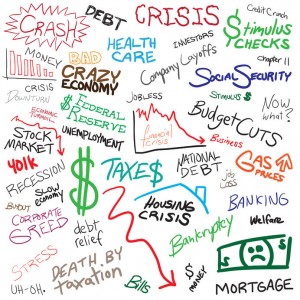Roy's Top 10 Prognostications in Florida Real Estate
Sun Jan 12, 2014 by Oppenheim Law on Florida Law News
- Traditional migration, which slowed to a crawl and actually briefly reversed itself during the Great Recession, will pick up again, with Baby Boomers moving from up North to Florida. In fact, sometime in the next few months, Florida’s population will eclipse that of New York. I recall, back in 1987 when I arrived in Florida, that possibility seemed improbable. So, to be clear, Florida will now be the third most populous state in the Union, only behind California, and Texas.
- Such in-bound Florida migration patterns will lead to long-term continued real estate price increases as homeowners from the Northeast will perceive better values and lower prices in Florida and will perceive a form of regional arbitrage by moving. Further, the lack of a state income tax will become even more paramount as wealth continues to be amassed by the upper one percent.
- Further, climate change on the one hand add fuel to the fire as severe and extreme weather events up North continue to become more common, encouraging migration to Florida. On the other hand, rising ocean levels will make waterfront property more dicey as insurance issues will, sooner rather than later, come into play. Flooding, will become more common in low-lying areas of Miami and coastal South Florida, which will make it, at times, the true Venice of America. The likelihood that climate change will be internalized into actual housing prices is probably still a few years out.
- Short sales will dry up if Congress does not renew the important tax breaks that it already extended once, last January, 2013, to the 2007 Mortgage Debt Relief Act. That being said, look for more bankruptcies should Congress not extend the Act.
 Unemployment statistics in Florida will continue to drop as jobs in construction, real estate, the cruise business, health care, and tourist and hospitality industries continue to improve.
Unemployment statistics in Florida will continue to drop as jobs in construction, real estate, the cruise business, health care, and tourist and hospitality industries continue to improve.- Parts of South Beach and Brickell will be valued as world-wide destinations and will disconnect from the local real estate market as foreigners from Europe, and South America continue to flock to these areas, particularly through cash closings.
- Builders will continue to be in the market for land for new projects, but they will need sufficient cash as the banks will not be able to take on risks in the same way they did before the economic crisis.
- New foreclosures will continue to slow, but will stay well above pre-2007 levels as the shock of the economic crisis will continue to have a residual impact on the economy. Further, many home equity lines will begin to mature, and homeowners will not find the banks willing to extend or refinance such loans.
- Courts will continue to dismiss foreclosures when the banks are not prepared for trial or where homeowners mount a good defense and can show the banks have not sufficiently established their cases.
 The Florida courts, including the appellate courts, will continue to grapple with the topics of mortgages that were accelerated more than 5 years ago, whether banks can then bring new foreclosure actions, and what will happen to those properties. Obviously, we will fight hard for our clients in these matters as we don’t believe the banks should be entitled to a second bite at the apple when the 5-year statute of limitations has expired.
The Florida courts, including the appellate courts, will continue to grapple with the topics of mortgages that were accelerated more than 5 years ago, whether banks can then bring new foreclosure actions, and what will happen to those properties. Obviously, we will fight hard for our clients in these matters as we don’t believe the banks should be entitled to a second bite at the apple when the 5-year statute of limitations has expired.
So… It will be a busy but good year for everyone.
All the best for the New Year!
Roy Oppenheim
From the Trenches



I totally agree with 8th point. Foreclosures will continue to slow, there is no doubt about it. The increase of privacy and information disposal laws makes a shredding company a great option for any business or person that cares about protecting its information and reputation.